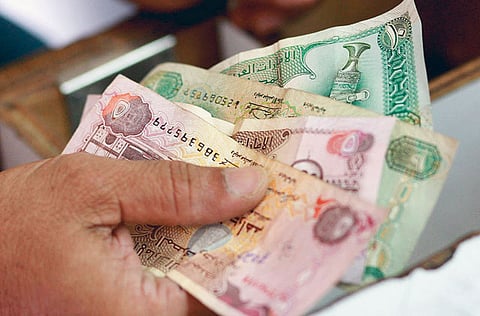Survey claims 85% of UAE expats in deep debt
Recent survey reveals majority of UAE residents are in debt, with many landing in jail

Dubai: A recent survey by a credit counselling and debt management company reveals 85 per cent of UAE residents are in debt and landing many in prison.
The survey, carried out by the International Swiss Debt Management (ISDM) Consultancy, also ranks residents from India and Philippines as the highest in terms of total debt. Pakistani and South African nationals follow.
"I am not surprised with this result. Indians, and especially Filipinos, go absolutely crazy with borrowing enormous amounts compared to the salary they earn," Steve Gregory, managing partner, Holborn Assets, a financial advisory firm in Dubai told Gulf News.
It is not unusual to meet a Filipino with a salary of Dh15,000 and over Dh250,000 in debt.
Charities and other organisations are engaged in trying to fly them home after they are released from prison, he added.
The reason for this behaviour has been the salary raises over the past years encouraging employees to borrow more as banks raised the stakes accordingly.
"It's a huge mess. Individuals, even on low salaries of Dh6,000, were able to get eight credit cards from different banks, including platinum, and max them out.
Banks don't check using outside companies to sell them, three months salary statement is enough to get a card," Gregory said.
Domino effect
In addition, he said the Indian and Filipino community, more than others perhaps, are willing to guarantee each other.
And when one or two lose their jobs a domino effect kicks in.
ISDM's managing director, Yohannes Mazeingia, equally blamed the lack of stringent credit ratings polices and the culture of consumerism for the creation of huge bad debts in the Emirates.
"Banks haven't been very wise and neither was the government allowing them to lend indiscriminately.
"It is putting a huge stress on the police, prisons and the judicial system, which the government is paying for," alerted Gregory.
Emcredit, which allows banks to share the credit history of clients and prospective clients, has been around since the end of 2006 but not all banks have become members.
"I doubt that half of the banks in the UAE have signed up, maybe because they have to pay for membership and a fee for each inquiry," said Gregory.
Cheque fraud
According to ISDM, 75 per cent of debtors are male and the remaining 25 per cent female.
Gregory said he knew of 120 women currently locked up in the Bur Dubai holding cells alone because of cheque fraud.



